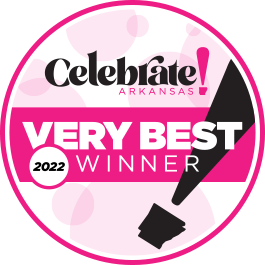In the last 6-8 months, normal business processes have been overhauled across the board. We’ve had to learn and adapt to our rapidly changing circumstances, and many of us have had to do it with new teams in tow. Not the least of obstacles has been how to train in this environment.
Over the years of managing a team and being personally on-boarded into new roles, I’ve both witnessed and experienced different ends of the spectrum of how that process can work.
- Trial by fire throws a new team member into the deep end to navigate it alone, figure out their own contacts and processes, and while prompting rapid learning, can be frustrating and disheartening, leaving morale low. At the opposite end of the spectrum is:
- Overly-structured training made up of classes, formal meetings, decks and flow charts, while having no responsibilities, meetings or deadlines for 30-45 days. This approach can be so detailed and last so long without the ability to apply new information that when released from the waiting period, the associate often has too high of expectations placed on them due to “time in training.” Meanwhile, it can feel like they’ve actually been thrown into the deep end because they’re unable to retain the amount of new information given to them without pacing it with context and application, which helps with retention.
Finding the correct balance of the two is difficult even under normal circumstances. Now throw a new curveball into that process: Quarantine.
I was fortunate enough to have made two hiring decisions at the beginning of the year. One new team member started 2 weeks before shutdown. She had the benefit of at least attending her formal onboarding week and receiving a computer and phone. The other associate started the week of shut down, wasn’t able to attend corporate onboarding, didn’t have any hardware for his first two weeks as our home office is out of state and everyone had been sent home, and we hadn’t seen each other in person since his interview.
How do you train in that environment? How do you build team culture and rapport? How do you quickly get to know and understand team members in a way that allows you to effectively communicate and teach when comfortable norms are taken away?
First, I’m incredibly thankful to have a fantastic, self-driven team. We all had to be flexible, as has everyone, to the learning curve of working and communicating exclusively digitally. With that in mind, here are some key takeaways from the training process that I would highly recommend as we continue to be physically separated and even as we head back to the office:
- Go out of your way to be available.
We all have meetings. LOTS of them. And in an office environment it’s easy to refer a new hire to someone else to job shadow while you’re busy. If you’re the one who’s been bridging the gap between associates, the most valuable time they can spend is with you. Right now, they can’t drop into your office and ask questions easily. Making time at a distance requires more intentionality.
- Be creative.
Culture and personality are the hardest things to learn digitally. We intentionally had meetings with no agenda. As restrictions lifted, we’ve had tailgate meetings. We do more calls and videos than emails and IM. People work best when they feel valued and appreciated, and finding creative ways to do that from a distance will go as far as any formal training because they will want to do well.
- Encourage peer training.
This might be my most accidental and favorite success. I happened to have hired two people with drastically different backgrounds and experiences. My background happens to touch both of theirs, but without either of their specialties. Both were new, and yet outside of business-specific information, the best people for them to learn from was each other. I want to be very clear here: I’m not talking about scheduled time to go sit with people with similar jobs and watch them work. What we’ve done is essentially peer-mentoring. They’ve learned each other’s strengths and when they encounter obstacles, they lean on and learn from each other. It has created a team dynamic that allows for knowledge and process sharing, excellent growth opportunities and questions, and a true team culture where everyone is united in the drive toward success.
Leah Ecker
*Senior National Account Lead, Walmart – Barcel

*Title and company of the author reflect their position at the time article was written.
The opinions expressed here by guest bloggers are their own, not necessarily those of Stout Executive Search.





